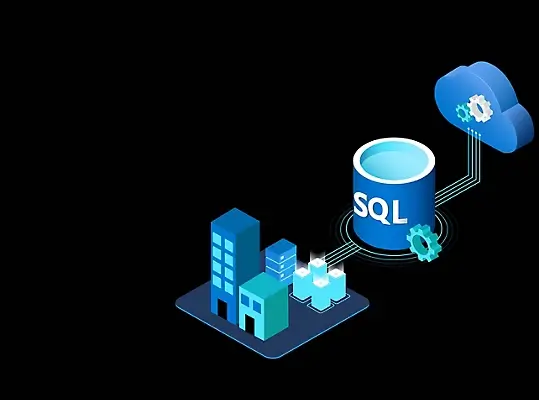Why SQL Server is Still Relevant in 2024
SQL Server is like the reliable, sturdy trunk of a tree in a forest full of different types of trees. It’s a database management system that has been around for decades, helping businesses store, manage, and access their data. Imagine you have a treasure chest. SQL Server is the key that not only unlocks it. But also helps you neatly arrange the jewels (your data) inside. It’s a go-to choice for many companies because it’s dependable and offers a lot of features to keep your data safe and accessible. And how DevOps Automation for SQL Server tools work?
Table of Contents
The Evolving Landscape of Database Technologies
Now, let’s talk about the forest around our sturdy tree. The world of databases is constantly changing, much like a forest that sees new types of trees sprouting up. New database technologies, often referred to as NoSQL databases, have emerged, each with its own unique features. Some are like bamboo, growing super fast but not as sturdy (great for quick, temporary projects). Others are like fruit trees, specialized in what they offer (ideal for specific types of data like documents or graphs).
However, even with all these new and specialized trees in the forest, our sturdy tree — SQL Server still stands tall and remains important. It has adapted to the changing climate by growing new branches and leaves, like better security features and automation capabilities, to stay relevant.
Timeless Appeal of SQL Server
- Reliability and Performance
Think of SQL Server as your trusty old car that never breaks down. It’s been around for a long time and has proven itself to be reliable. Just like how you’d want a car that starts every morning without a fuss, businesses want a database that is dependable. SQL Server offers high performance, meaning it can handle a lot of data quickly and without errors. It’s like having a car with a powerful engine that can easily cruise on highways but is also smooth in city traffic.
- Scalability and Flexibility
Imagine you have a small potted plant that you love. What if that plant starts to grow bigger and needs more space? You’d want a pot that can expand or be easy to transfer into a bigger one, right? SQL Server is similar; it’s scalable. This means that as your business grows, SQL Server can grow with you. It can handle more data and more users without requiring you to uproot and move to a completely different system. It’s flexible enough to adapt to your needs, whether you’re a small startup or a large enterprise.
- Strong Community and Ecosystem
Having a strong community around something is like having a big, supportive family. SQL Server has been around for so long that it has built a large community of users, developers, and experts. This is a treasure trove of resources, from forums and tutorials to specialized tools that make working with SQL Server even easier. It’s like having a family of car enthusiasts when you own a classic car; there’s always someone who can offer advice, share a useful tool, or help you find spare parts.
1. Challenges Faced by SQL Server
Competition from NoSQL Databases
Imagine you’ve been the star player on your basketball team for years, but suddenly, a new game called “Three-on-Three” becomes popular. It’s faster, less structured, and attracts a lot of attention. NoSQL databases are like this new game. They are designed for quick, flexible data storage and retrieval, and they don’t require the rigid structure that SQL Server does. This makes NoSQL databases appealing for certain types of projects, like mobile apps or real-time analytics, where speed and flexibility are more important than structure and consistency.
Data Security Concerns
Think of SQL Server as a vault where you keep all your valuable items. Just like any vault, it needs to be secure from burglars. In the digital world, these burglars are hackers who try to steal data. While SQL Server has robust security features, no system can be 100% secure. As hacking techniques become more advanced, the challenge to keep the “vault” secure becomes greater. This is a concern for businesses that store sensitive information, like customer data or financial records, in SQL Server databases.
Complexity and Learning Curve
Learning to use SQL Server is like learning to play a musical instrument; it takes time and practice. While it’s a powerful tool, it’s not the easiest to pick up and play. You need to understand its language (SQL), how to design a database, and how to maintain it. This can be intimidating for beginners or small businesses that don’t have a dedicated IT team. The complexity also means that it can be overkill for simple projects that don’t require all the features SQL Server offers.
2. How DevOps is Revitalizing SQL Server
-
Automation and Efficiency
Imagine you’re baking cookies. Normally, you’d mix the dough, cut out shapes, bake them, and then decorate them one by one. It’s a long process if you’re doing it all by hand. Now, what if you had a magical kitchen that could mix the dough for you, cut out perfect shapes, and even decorate the cookies while you sit back and relax? That’s what DevOps does for SQL Server. It automates many tasks that used to be manual, making the whole process faster and more efficient. This means businesses can focus on making better cookies — err, I mean better products rather than getting bogged down in the nitty-gritty details.
2. Continuous Integration and Continuous Deployment (CI/CD)
Let’s say you’re building a LEGO castle. Normally, you’d build it piece by piece, occasionally finding that some parts don’t fit well together, requiring you to backtrack. Continuous Integration and Continuous Deployment (CI/CD) is like having a LEGO master builder by your side, checking each piece as you go along. If something doesn’t fit, you know right away and can fix it before it becomes a bigger problem. In the world of SQL Server, CI/CD ensures that any changes to the database are automatically tested and integrated, making sure everything runs smoothly. This way, updates and new features can be added seamlessly without causing disruptions.
3. Security Enhancements
Remember the vault analogy for SQL Server? Well, DevOps is like adding an advanced security system to that vault. Not only does it have the usual locks and keys, but now it also has fingerprint recognition, facial scans, and real-time alerts if someone tries to break in. DevOps brings in automated security checks and real-time monitoring, making SQL Server even more secure than before. It’s like having a security guard who never sleeps, constantly watching over your valuable data.
3. Introducing DevOps Automation for SQL Server

DevOps Automation for SQL Server is a game-changing solution that streamlines the entire lifecycle of your database. It’s like having a Swiss Army knife for database management, offering a range of tools and features that automate tasks from development to deployment. This approach integrates seamlessly with DevOps practices, which focus on collaboration and automation to improve efficiency and reduce errors.
Key Features and Benefits
The DevOps Automation for SQL Server tool, particularly the one offered by Devart, comes packed with features designed to make your life easier.
Here are some of the key features:
- Automated Testing: Think of this as a spell-checker for your database. It automatically scans for errors, helping you correct them before they become bigger issues.
- Continuous Integration and Continuous Deployment (CI/CD): This is the heart of DevOps. It ensures that changes to the database are automatically tested and integrated, allowing for smoother and faster updates.
- Real-time Monitoring and Alerts: Imagine having a watchdog that never sleeps, constantly keeping an eye on your database and alerting you if something goes wrong. That’s what this feature does.
- Automated Audits and Compliance Checks: Keeping up with regulations can be a headache. This feature automates that process, ensuring you’re always in compliance without having to sift through paperwork.
The benefits are clear: increased efficiency, reduced risk of errors, and enhanced security. It’s like upgrading from a manual car to an automatic; once you experience the ease, you won’t want to go back.
How It Fits into the Modern SQL Server Ecosystem
In today’s fast-paced tech environment, staying competitive means being agile and adaptable. DevOps Automation for SQL Server is not just another tool – it’s a vital component of a modern SQL Server ecosystem. It complements existing features and functionalities, making them more robust and easier to manage. Just like how smartphones have become an integral part of our daily lives, enhancing and simplifying multiple tasks, DevOps Automation has become an indispensable part of managing SQL Server databases in modern enterprises.
4. Future of SQL Server
As we peer into the horizon of SQL Server’s developmental trajectory, it becomes evident that Microsoft is investing heavily in augmenting its capabilities. The roadmap delineates a focus on hybrid cloud architectures, thereby facilitating seamless data management across on-premises and cloud environments. Moreover, the integration of Azure Arc enables SQL Server to extend its data services across multiple clouds and even edge devices, thereby democratizing data access.
Another noteworthy development is the introduction of Accelerated Database Recovery (ADR), designed to drastically reduce the time required for database recovery processes. This is particularly crucial for high-transaction environments where downtime can have significant economic repercussions.
The Role of AI and Machine Learning
Artificial Intelligence (AI) and Machine Learning (ML) are not merely buzzwords in the context of SQL Server – they are transformative technologies that are being intricately woven into its fabric. SQL Server 2019, for instance, has already incorporated Big Data Clusters that allow for AI and ML models to be trained directly within the database. This is a paradigm shift from traditional methods that required data to be exported to specialized environments for such computational tasks.
The integration of AI and ML serves multiple purposes. Firstly, it enhances predictive analytics, thereby enabling businesses to make data-driven decisions with higher accuracy. Secondly, it automates routine tasks such as data cleaning and transformation, which are often the most time-consuming aspects of data management. Lastly, AI and ML algorithms can be employed for advanced security protocols, including anomaly detection, thereby fortifying the database against cyber threats.
In summary, the future of SQL Server is not static – it is a dynamic landscape being shaped by technological advancements and evolving business needs. The integration of AI and ML, coupled with continuous updates, ensures that SQL Server will remain a robust and relevant database management system in the foreseeable future.
Is SQL still relevant 2024?
Yes, SQL is still relevant in 2024 due to its reliability, performance, scalability, and flexibility. Despite competition from other database technologies, SQL Server remains a popular choice for managing and querying structured data, especially in enterprise environments.
Does SQL Server have a future?
Yes, SQL Server has a future. It continues to evolve to meet the changing needs of businesses. The future of SQL Server includes advancements such as hybrid cloud architectures, integration with Azure Arc, accelerated database recovery, and integration of AI and ML for predictive analytics, automation, and advanced security.

Adhar Dhaval is experienced portfolio, program and project leader with demonstrated leadership in all phases of sales and service delivery of diverse technology solutions. He is a speaker sharing advice and industry perspective on emerging best practices in project leadership, program management, leadership and strategy. He is working for the Chair Leadership Co.











